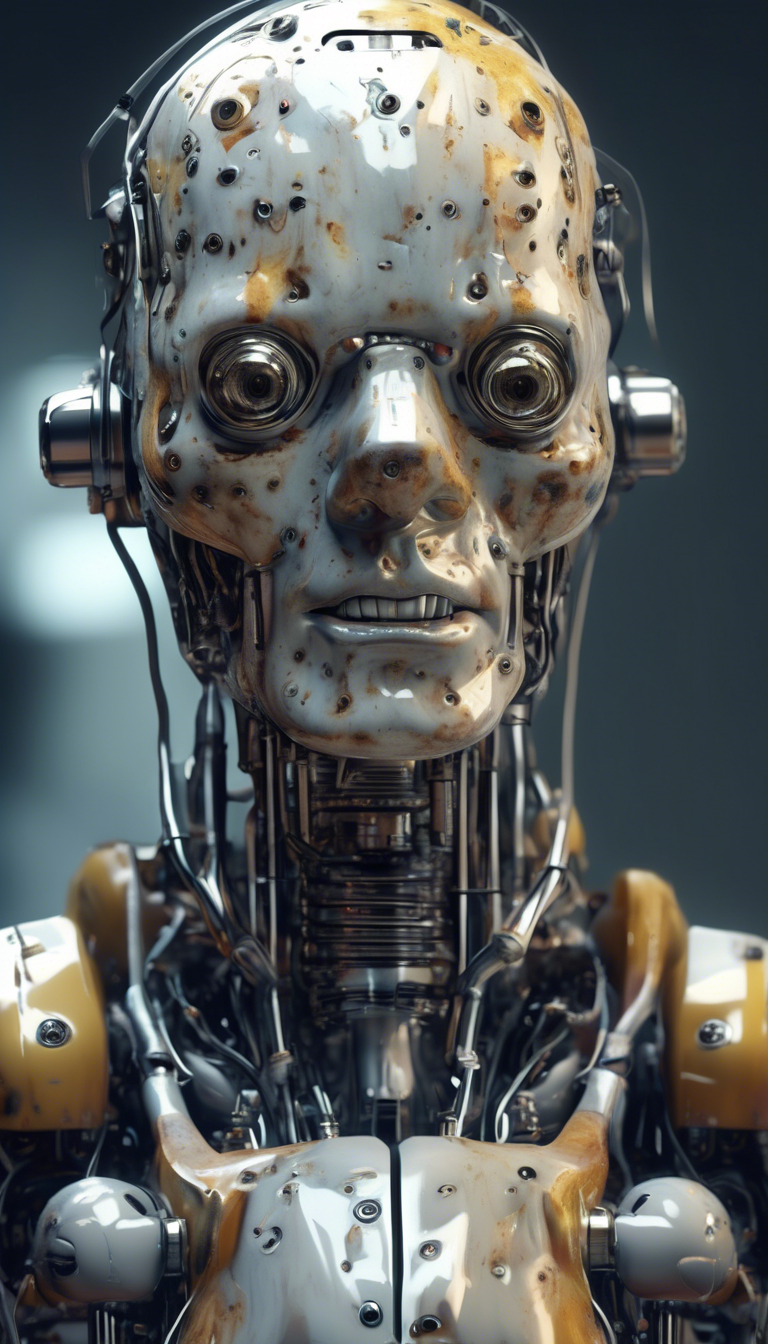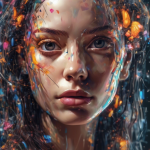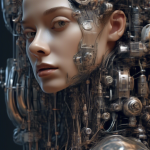The Evolution of AI Memes: How Artificial Intelligence Shapes Modern Humor
The relationship between humor and technology has always been dynamic, and the advent of artificial intelligence has introduced a new twist to this age-old interaction. AI memes are not just a fad; they represent a cultural shift in how we create, share, and interpret humor. This advancement in AI technology allows for the generation of memes that resonate with the specific characteristics of viral content while adapting to audience preferences.
The foundations of AI memes lie in machine learning algorithms that analyze vast datasets of images, texts, and social media interactions. By recognizing patterns, these algorithms can craft memes that mimic human creativity. Here’s how the landscape of humor is changing with the help of artificial intelligence:
- Data-Driven Humor: AI uses vast amounts of data to understand trending topics and humor styles. This capability allows AI-generated memes to remain relatable and timely.
- Cultural Sensitivity: Advanced algorithms now consider cultural contexts and nuances, enabling AI to create memes that resonate in diverse communities without crossing lines.
- Personalization: AI can tailor memes for specific audiences by analyzing user behaviors and preferences. This ensures that the humor hits closer to home, thereby increasing engagement.
One classic example of AI-generated humor is the use of deep learning techniques to create memes. Tools like OpenAI’s DALL-E can generate images, while GPT-3 can produce witty captions. This combination leads to memes that are fresh and imaginative, opening the door to entirely new forms of comedic expression. Imagine a scenario where a user inputs a trend, and AI instantly crafts a funny image to go along with a fitting punchline. The resulting meme has the potential to go viral within hours, highlighting the swift adaptability of AI in meme culture.
Furthermore, AI isn’t just a passive tool; it actively engages with meme culture. Platforms like Reddit and Instagram have integrated AI to recommend trending memes based on user interactions. This integration creates a feedback loop where humor evolves in real-time, adapting to audience reactions. As more users engage with AI-generated memes, the algorithms learn and improve, producing even more relatable content based on previous successes.
However, the rise of AI memes isn’t without controversy. The debate surrounding the ethics of AI in humor brings forth questions about originality and ownership. While AI can generate amusing content, some argue that it lacks the genuine human touch that often makes humor relatable. Memes created by AI draw upon an amalgamation of existing content, which can lead to accusations of plagiarism if not managed responsibly.
Moreover, as AI becomes more adept at producing memes, there’s a growing concern about the potential for misinformation. AI-generated memes can be easily manipulated to spread false narratives or incite conflict. This risk necessitates a careful approach to how we consume and share AI memes, encouraging a discerning eye in the viewer’s assessment of content.
Despite these challenges, AI memes continue to evolve, showcasing their unique place in modern humor. The blend of technology and creativity opens up endless possibilities for comedic expression. Here are some potential future trends in AI-driven humor to watch for:
- Enhanced Interactivity: Future AI memes may become more interactive, allowing users to create their own variations or choose different endings.
- Augmented Reality Integration: Imagine wearing AR glasses that show real-time AI-generated memes on your surroundings, making humor 3D and immersive.
- Broader Accessibility: As AI tools become more user-friendly, people from various backgrounds may start creating their own AI memes, democratizing humor.
The progression of AI memes illustrates the fascinating interplay between technology and humor. As artificial intelligence continues to advance, the way we create, share, and laugh at memes will certainly evolve, offering a continuously fresh lens through which to view the world. It’s a comedy revolution, and we are all part of it. Embracing this change allows us to appreciate the creativity involved in both human and algorithmically-generated humor.
The Cultural Impact of AI Memes on Social Media Platforms
In recent years, the rise of artificial intelligence (AI) has profoundly influenced various dimensions of our daily lives, particularly in the realm of social media. Among the most notable manifestations of this phenomenon is the emergence of AI memes. These humorous images, videos, or posts created with the assistance of AI tools have not only captivated audiences but also reshaped the cultural landscape of online interactions.
AI memes often leverage machine learning algorithms to generate content that resonates with users on a deeply personal level. By analyzing vast amounts of data, these algorithms can identify patterns in humor, trends, and cultural references. This capability allows creators to produce memes that reflect timely social commentary, making them highly shareable across various platforms like Instagram, Twitter, and TikTok.
The cultural impact of AI memes can be categorized into several key areas:
- Democratization of Creativity: AI technologies have lowered the barrier to entry for content creation. Anyone with access to AI meme generators can craft their unique pieces of humor, leading to an explosion of diverse voices in digital spaces.
- Instant Feedback Loop: These memes often receive immediate reactions, allowing creators to refine their craft based on audience engagement. The real-time nature of social media means that what works today may become outdated tomorrow, prompting rapid iterations in meme-making techniques.
- Cultural Commentary: AI memes often serve as instantaneous reflections of societal issues. They can highlight everything from political strife to pop culture phenomena, often sparking discussions that transcend the confines of the internet.
- Global Humor: Algorithms can bridge cultural divides. By analyzing global trends, AI can produce memes that resonate across different demographics and geographic locations, fostering a more interconnected digital culture.
AI memes are especially notable for their adaptability. One reason they thrive is their ability to capture the absurdity of modern life. For instance, the rise of “deepfake” technology has both entertained and disturbed audiences, giving fodder to memes that playfully manipulate reality. This reflects a broader cultural trend toward accepting and critiquing the shifting nature of truth in the digital age.
Moreover, the fast-paced world of social media means that the lifespan of a meme can be incredibly brief. AI-generated memes have a unique capacity to evolve quickly, as creators can iterate on existing memes almost in real-time. This rapid evolution leads to a dynamic cultural exchange where trends can change overnight, and humor adapts to the latest developments in life.
However, the integration of AI into meme culture isn’t without its challenges. Concerns around originality and authenticity have arisen, with critics arguing that AI-generated content may lack the nuance and deep understanding of human experiences. While AI can mimic patterns and generate appealing humor, it sometimes misses the subtlety that makes a meme truly resonate with audiences.
Furthermore, AI memes can contribute to the spread of misinformation. Since memes are easily shareable, false narratives can propagate under the guise of humor, complicating the media landscape. As such, discerning audiences must navigate this environment, questioning the veracity of the content they share and consume.
Despite these challenges, the future of AI memes looks promising. As technology continues to evolve, it’s likely that we will see even more sophisticated and context-aware AI tools capable of creating rich, layered humor. This could lead to new forms of engagement where audiences not only consume but also interact with memes in innovative ways.
As social media continues to grow and evolve, AI memes are becoming a powerful vehicle for cultural expression and societal reflection. They embody the intersection of technology and creativity, offering the potential to shape our digital discourse. As we engage with these AI-generated pieces of humor, it’s essential to recognize their impact on our communication, culture, and shared experiences.
Ultimately, AI memes have carved out a significant niche in the realm of social media, prompting discussions that influence the broader cultural fabric. They remind us of the limitless possibilities technology affords while also challenging us to engage critically with the digital narratives that permeate our lives.
Conclusion
As we reflect on the journey of AI memes, it becomes clear that they have significantly transformed the landscape of modern humor. The evolution of artificial intelligence has opened new avenues for creativity, allowing meme creators to play with complex algorithms that generate humorous content tailored to their audiences. By employing various AI tools, users can produce memes that resonate on deeper levels, utilizing data-driven insights to generate relatable, funny, and sometimes absurd content that captivates attention. This shift not only alters the way humor is created but also enhances engagement across various platforms.
Artificial intelligence has made it possible to analyze trends in real-time, adapting to cultural shifts and audience preferences quicker than ever. This adaptability has led to a surge in the popularity of AI memes, with users sharing and remixing content almost instantaneously, thus creating a viral phenomenon. The rapid spread of these memes reflects society’s penchant for humor that is not only witty but also relevant to current events and popular culture. As more people engage with AI-generated humor, we see the lines between creator and audience blur; everyone can now become a meme creator, effortlessly contributing to this evolving form of entertainment.
Social media platforms have undeniably amplified the cultural impact of AI memes. Platforms like Instagram, Twitter, TikTok, and Reddit offer fertile ground for these digital creations to flourish, allowing users to share their thoughts and humor at the click of a button. The shareability of AI memes has led to the construction of communities centered around humor, where individuals connect over shared experiences and funny moments. Specific hashtags and trends emerge, facilitating conversations and building connections among users who might not have crossed paths otherwise.
Moreover, the accessibility of meme generators powered by AI democratizes content creation. People from all walks of life can now participate in shaping the cultural narrative through humor, reflecting their unique perspectives and experiences. This inclusivity fosters a diverse range of comedic styles, reflecting various cultures and subcultures while also addressing societal issues through humor. AI memes frequently tackle topics from politics to social justice, often provoking thought while maintaining a lighthearted approach.
The role of AI in creating memes goes beyond humor; it challenges our understanding of creativity itself. By enabling machines to produce content that evokes laughter, we must confront the question: What does it mean to be creative? This debate has implications for artists and writers, pushing them to explore their authenticity in a world where AI can mimic human creativity. As AI continues to evolve, the future landscape of humor will likely include a blend of human ingenuity and algorithmic generation, leading to an intriguing and, at times, contentious discussion about the nature of art.
As AI memes proliferate across social media, the cultural conversations they spark cannot be ignored. They serve as mirrors reflecting societal values, fears, and absurdities, all wrapped in a comedic package. The laughter they evoke can be a coping mechanism, providing relief during challenging times or serving as a commentary on pressing issues. This duality illustrates how laughter can be both a form of entertainment and a vehicle for change, allowing memes to challenge the status quo while simultaneously fostering unity.
Going forward, the continued evolution of AI memes will likely present new opportunities and challenges for both creators and consumers. With advancements in machine learning and natural language processing, the ability of AI to craft even more sophisticated humor is on the horizon. As algorithms become increasingly adept at understanding context and nuance, the potential for memes that truly resonate with diverse audiences expands exponentially.
The interplay between technology and humor will undoubtedly keep audiences engaged as they discover what AI can achieve. There’s an exciting future ahead where comedians, artists, and everyday users harness AI to push the boundaries of humor and creativity. As the impact of AI on our social fabric continues to unfold, we remain positioned on the cusp of a new era of meme culture. The blend of human and machine innovation invites endless possibilities for humor that captivates, connects, and reflects our society in extraordinary ways.


